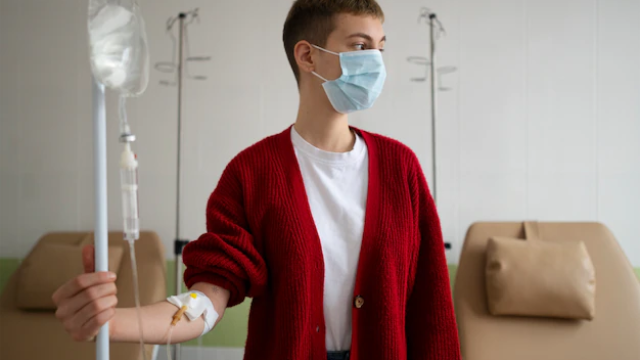Can cancer be inherited? The answer is yes. Studies have found that at least 22 types of cancer are genetic diseases that are passed down from generation to generation in families. If a sibling has these cancers, the risk of other siblings getting the same cancer will increase by 33%.
Several types of cancer that can be "hereditary"
Different cancers have different genetic risks. Common genetically predisposed cancers are as follows:
1. Liver cancer
Certain genetic defects can lead to an increased risk of liver cancer. If parents are diagnosed with liver cancer, children should be vigilant.
2. Lung cancer
People with first-degree relatives (parents and siblings) who have lung cancer have a greater chance of developing lung cancer, and women are at a higher risk than men.
3. Breast cancer
Under normal circumstances, if one mother or sister in the family has breast cancer, the probability of her daughter or sister suffering from breast cancer is about 3 times higher than that of ordinary women.
4. Gastric cancer
Relatives of patients with gastric cancer have a 2-3 times higher risk of developing gastric cancer than others.
5. Pancreatic cancer
Parents, siblings, children, etc. suffer from the disease, and the risk of the disease will increase significantly, and the disease often occurs before the age of 50.
6. Prostate cancer
If an immediate family member has prostate cancer, their risk of getting prostate cancer doubles. The relative risk of prostate cancer in two or more immediate family members increases by 5 to 11 times.
7. Nasopharyngeal carcinoma
The incidence of nasopharyngeal carcinoma has obvious racial susceptibility, regional clustering and familial tendency.

How to prevent cancer if you have a family history
If someone in the family has cancer, there are three aspects to judge whether the risk of cancer is high:
△ multiple: one of the close relatives has multiple cancers, or multiple close relatives have cancer;
△ rare: close relatives have very rare cancers, for example, the male in the family has breast cancer;
△ young: refers to the age of relatives with cancer is very young, such as under 30 years old.
People with these conditions should check their genetic background and consider genetic mutation detection to detect risks as soon as possible.
You should know that cancer is a chronic disease, and it generally takes 5-20 years from the onset to the late stage. People with a family history can consult their doctors about the genetic characteristics of family cancer and conduct regular screening, preferably once or twice a year.
Prevention is the most effective way to stay away from cancer.

This situation is more terrible than "heredity"
Cancer is not only related to genetics, but also to lifestyle, mood and stress.
Cancer tends to occur in the same family, mostly because of similar lifestyle and living environment, especially some unhealthy living habits. Unhealthy lifestyle includes unhealthy eating, less exercise, smoking, etc.
It is these unhealthy lifestyles that have brought about the "mass occurrence" of cancer, but people mistakenly believe that cancer can be inherited or transmitted.

Good habits to prevent cancer
1. Reasonable diet: Take care of your mouth, eat less spicy, grilled and marinated food, eat more fruits and vegetables, and stay away from moldy or contaminated food.
2. Refuse smoking and stay away from "second-hand smoke": Long-term active smoking or passive smoking will increase the risk of cancer.
3. Adhere to physical exercise: combine work and rest, do about 1 hour of brisk walking or similar exercise every day, and at least 1 hour of sweaty vigorous exercise every week.
4. Adhere to regular physical examinations: especially for high-risk groups with a family history of cancer and occupational exposure, early detection, early diagnosis, and early treatment are achieved.






